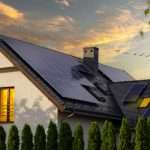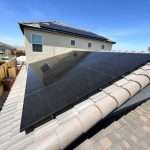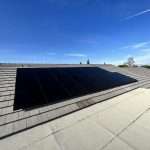In the past decade, global warming wasn’t taken very seriously. However, the situation has changed now that people who care have decided to help improve the planet. While we’re still a long way off, many people have sought solutions to ensure they help the environment, such as installing solar panels.
Solar panels work by absorbing solar energy and converting them into energy you can use at home. It’s an excellent way to reduce your carbon footprint while cutting energy costs, which is the primary selling point for homeowners. However, not everyone can afford them, much less be able to use them, because not all homes can presently accommodate them. Aside from the installation cost, long-term maintenance is also an issue because things like natural disasters can damage them.
If you’re planning to get solar panels for your home, you must first consider the following:
#1 – Costs Involved
You must first consider whether you can afford the upfront costs of purchasing and installing solar panels. The installation cost is the primary concern for many homes and business owners, especially because the cheaper solar panels can still fetch a high price. The price of solar panels has decreased significantly in recent years, but you still need to factor in the cost of installation, which can be expensive.
#2 – Solar Incentives
Several solar incentives are available to help you offset the cost of solar panels. The federal government offers a solar tax credit, which allows you to claim up to 30% of the cost of installing solar panels on your home. Some states and utility companies also offer solar rebates and net metering, which can further offset the cost of solar panels.
For example, if you live in a state with a solar rebate program, you may be able to receive a rebate of up to $1,000 for installing solar panels on your home.
#3 – Amount of Sunlight Your Roof Receives
Because solar panels absorb sunlight for energy, they work best when they receive full sunlight. If your roof doesn’t receive full sunlight, installing solar panels is still possible, but their efficiency will be reduced. The sunlight your roof receives can be measured per square meter of kilowatt-hours (kWh).
#4 – Your Home’s Roof
The roof itself also matters because there are instances where it should be replaced first before solar panel installation can be done. This is because solar panels are mounted on the roof. If the roof is not in good condition, it might not be able to support the solar panels.
#5 – Your Local Area’s Climate
The climate of your local area matters because it affects how much sunlight your solar panels will receive. If you live in an area with frequent cloudy days, your solar panels will not be as effective as they would be in a sunny location.
#6 – Maintenance
Solar panels require very little maintenance. However, you’ll need to clean the panels every few months to remove any dirt or debris. Failure to do this can cause long-term damage to your solar panels, wasting your investment.
Should You Install Solar Panels?
Installing solar panels is a big decision, and it’s not one that you should take lightly. However, if you’re looking for a way to save money on your energy bills and help the environment, solar panels are an excellent option. Not all solar panels are created equal, so it may take some time before you find the best one that suits your needs and budget.
Conclusion
Solar panels can be a great way to save money on energy costs, help the environment and reduce your carbon footprint. However, they’re a significant investment, so research before purchasing. All that matters is that you find the right solar panel for your home and needs so that you can reap the maximum benefits.
If you’re looking for solar home systems in Bakersfield, Arc Energy Solutions. can help you! We provide comprehensive solar solutions to turn your home green and eco-friendly, all for fair prices. Reach out today via661-615-2025 or stephen@arcenergyco.com and allow us to help you!










